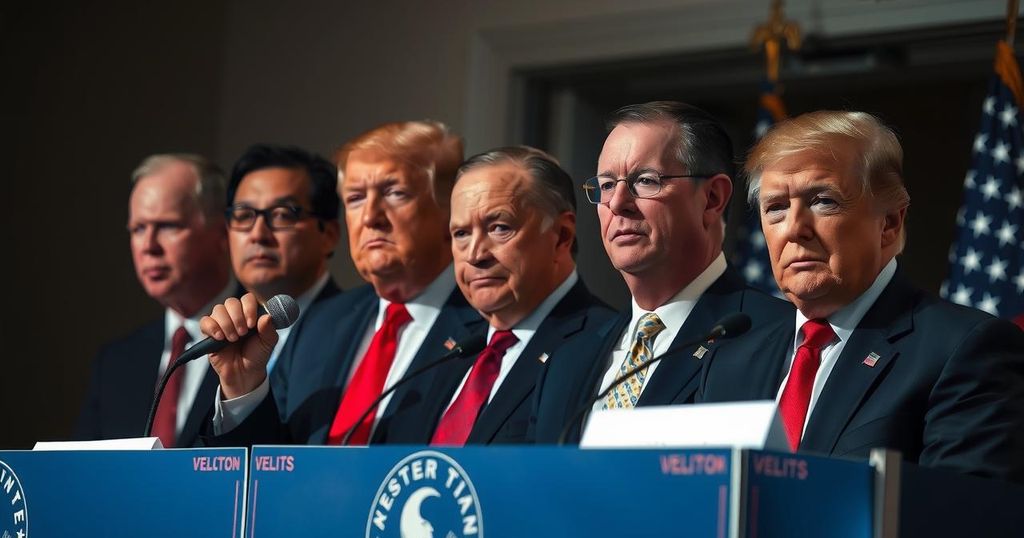Four years after the January 6 insurrection, 157 election deniers remain in Congress, indicating a troubling normalization of these views. Prominent representatives include Senators Ted Cruz and Rick Scott, alongside notable figures in state governance. Unlike decisive international actions seen in South Korea and Brazil, U.S. accountability measures have been slow, allowing election denial to persist and potentially shape future elections.
Four years following the insurrection on January 6, 2021, a notable number of election deniers remain in the United States Congress. With 157 members in the newly formed 119th Congress identified as election deniers, the persistence of this faction indicates the waning political consequences of their actions. This includes a significant representation among Republican lawmakers, with 137 in the House and 20 in the Senate, actively undermining confidence in the 2020 election results. Prominent figures such as Senators Ted Cruz and Rick Scott are part of this contingent, alongside the entire Republican House leadership.
The resilience of election deniers is further echoed in state-level offices, with 10 of 27 Republican governors, 9 of 28 Republican attorneys general, and 4 of 26 GOP secretaries of state maintaining similar positions. Unlike more decisive actions observed in countries like South Korea and Brazil, where government officials faced immediate repercussions for attempts to undermine democracy, in the United States, accountability remains elusive. Legal actions initiated by Attorney General Merrick Garland have predominantly targeted individual rioters rather than those orchestrating the unrest, resulting in substantial criticisms of his methodology.
The comparisons with international responses underscore a stark contrast. In South Korea, President Yoon Suk Yeol faced impeachment less than a month after declaring martial law based on dubious claims, while Brazil swiftly detained key figures linked to the January 8 riots following Bolsonaro’s electoral defeat. Such swift accountability was absent in the U.S., where only 900 individuals have faced charges linked to the riots, yet political figures responsible for inciting insurrection remain largely unscathed.
Ultimately, the failure to address the actions of election deniers has allowed them to become normalized within U.S. politics. The status of 157 election deniers in Congress illustrates a concerning trend where those who challenge election legitimacy do not face significant repercussions, a reality that continues to shape the political landscape four years after the Capitol riot. The implications of this normalization will likely resonate through subsequent electoral cycles, further embedding the denialist narrative into the American political fabric.
The persistence of election deniers in the U.S. Congress marks a significant moment in American political history, especially in the context of the January 6 insurrection. The Capitol riot attempted to subvert a presidential election outcome, yet subsequent actions taken against those involved have been viewed as inadequate. Over the years, various governmental responses have emerged internationally, particularly in South Korea and Brazil, showcasing a more decisive approach to dealing with political insurrections compared to the United States. This context illustrates the political and legal landscape that shapes the current presence of election deniers within Congress, sparking ongoing concerns about the stability of democratic institutions in the U.S.
In conclusion, the presence of 157 election deniers in Congress highlights the alarming normalization of such views within American politics post-January 6. The contrasting responses observed in other democracies serve to accentuate the lack of urgency in U.S. accountability measures, raising significant questions about the future integrity of democratic processes. Without decisive action, the normalization of election denial may further erode public trust in electoral systems, posing long-term risks to the nation’s democratic ideals.
Original Source: zeteo.com






